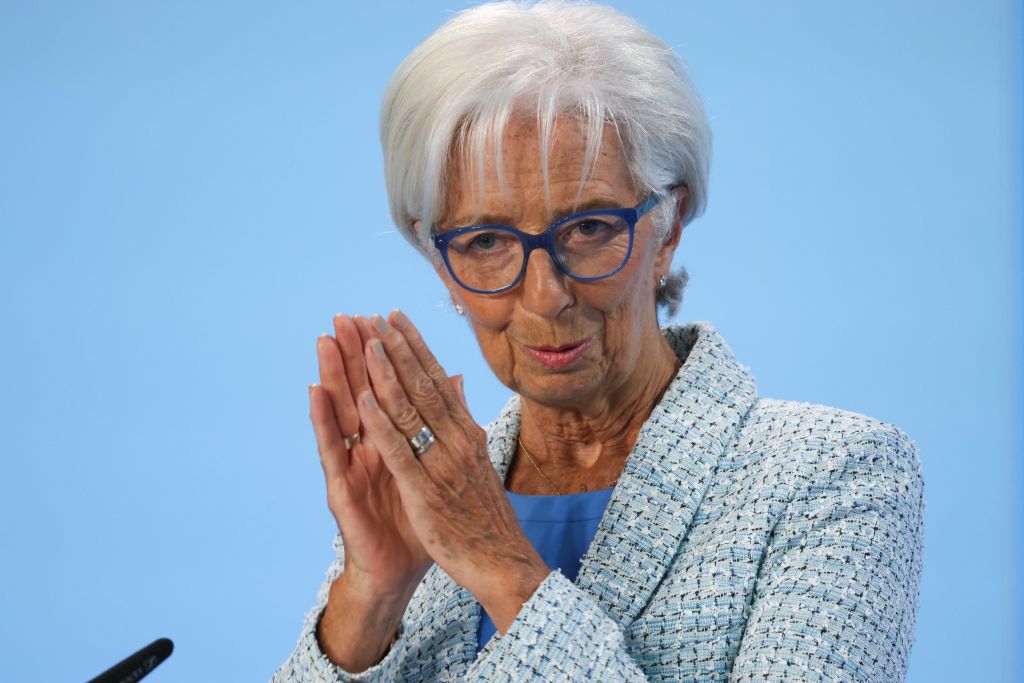On Wednesday, the Bank of Canada cut its target interest rate for the first time in four years. Then, yesterday, the European Central Bank followed suit. Despite both central banks warning investors not to read too much into these moves, markets still ran with the narrative that the days of easy money were finally returning. The bond-market rally already underway picked up speed, and long-term interest rates across the developed economies sank to multi-month lows as traders anticipated further cuts.
Spurred on by the lure of cheap credit, stock markets then set new highs. Bitcoin, which arguably can be seen as a betting market on the future direction of monetary policy, started heading towards the record levels it set earlier this year. Keith Gill, a “finfluencer” who goes by the name Roaring Kitty, triggered yet another meme-stock rally in GameStop shares by saying he’d post a livestream today at noon.
But this morning the US jobs report came out, and the mirrorball crashed to the dance floor. Not only did the number of new jobs created in the American economy surge past expectations, but hourly wages remained strongly positive. Bond yields shot back up as investors sold Treasuries, ending the party. Markets lost their vigour. At the open of trading, GameStop shares plunged by nearly a fifth.
There was already an inkling of what was coming in the previous day’s productivity report, which revealed American unit labour costs to still be rising strongly. In short, the US economy is still strong and inflationary pressures remain present, which ensures the Federal Reserve won’t be joining any rate-cutting cycle in the near future.
For President Joe Biden, the report was a mixed blessing. On one hand, jobs abound and real wages continue rising, which will improve his re-election prospects. On the other, mortgage and credit-card rates won’t be coming down soon, which will hit the disposable incomes of the voters he needs to win over.
Still, it constitutes better news for him than it does for governments and central banks elsewhere. All the US’s major partners are struggling to regain economic momentum. The problem they each face is that while their own inflationary pressures are easing sufficiently to permit rate cuts, high interest rates in the US will prevent them from going very far with it.
The higher rates on offer in the US will lure money stateside from those economies. That will diminish the value of their currencies, raising import costs and thus refuelling their inflation. Meanwhile, bond investors looking for higher returns will sell other G7 bonds to buy US Treasuries — not only because they’ll offer better returns, but because a strengthening dollar will improve the value of their investments in their own currencies. And as they sell Canadian, European or British bonds, the yield on those instruments will rise, driving interest rates back up.
This tug of war between central banks and investors will continue until one or the other side taps out. Fed Chairman Jerome Powell keeps signalling that better days are coming but then the data keeps coming along and making him look like he’s jumped the gun. It’s now looking increasingly likely that any easing by central banks in the coming months will be limited and tentative. Meanwhile, the activity in bond markets, which is what ultimately determines long-term rates such as mortgages and car loans, is for now counteracting the moves by central banks.
Bond yields in Canada and Europe actually ended the week above where they were before their central banks cut short-term rates. It doesn’t look like things will change anytime soon.











Join the discussion
Join like minded readers that support our journalism by becoming a paid subscriber
To join the discussion in the comments, become a paid subscriber.
Join like minded readers that support our journalism, read unlimited articles and enjoy other subscriber-only benefits.
Subscribe